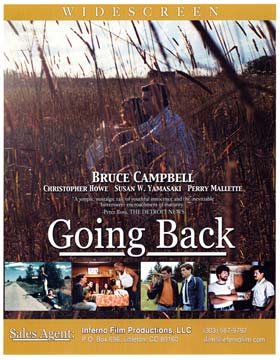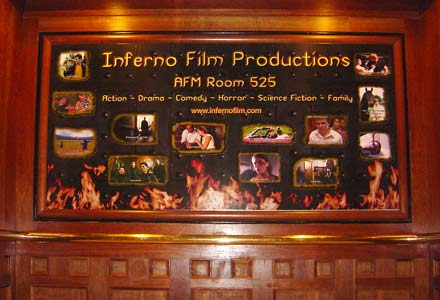|

The central atrium at the Loews Santa Monica
|
For the duration of the market, the Santa Monica Loews Hotel gets
turned into an office building. They haul out the beds and the rest of the furniture from the rooms, and you can pick whatever assortment of
office furniture you'd like put in there. It's not cheap, but it works quite well, and for a week-plus long market, you really do appreciate
having comfortable, quiet, and private office suites.
|
In 2004, we moved from the eighth (top) floor to our new offices on the fifth floor. While being on the top floor was cool in
its own way, I'm happier being in our new spot: you come up the stairs or the elevator from the lobby, hang to the left,
and we're in the corner office. Being easy to find is a good thing.
|
This year the Inferno team included Darlene Cypser, Mark Steven Grove, and myself. According to the official stats, the
attendance was up 10% over last year, but we were a lot more than 10% busier. From mid-morning until late afternoon,
we usually had at least a couple of groups from different companies at any one time.
One side effect was that our food bill was a lot lower than last year's: the food available at the market was as pricey as
ever, but it was a serious challenge to find a free moment to eat anything during the day.
|
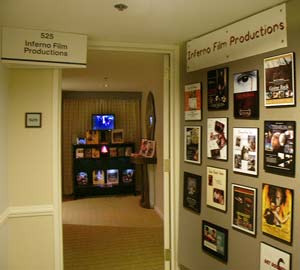
Inferno Film Productions
AFM Office 525
|
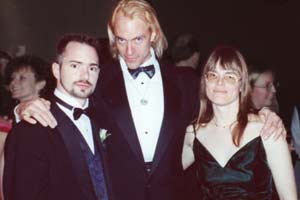
Mark Grove, Trygve Lode, Darlene Cypser
|
The American Film Market is always intense, and it's always an educational and inspirational experience: more than a week
solid talking to movie distributors from around the world about what they're looking for and seeing what
product qualities and marketing aspects appeal to them.
It makes you want to rush right back home and create a script specifically geared towards what the
buyers were saying at this market.
|
...but that's exactly the kicker...*this* market. By the time you had the film ready to sell,
the buyers' tastes might have changed.
|
So we try to bring a diverse catalog of titles--eighteen, in this case--to the market.
The worst word to start out a sales pitch with
is "no"--especially when a motivated buyer just asked you if you had a particular type of product.
|
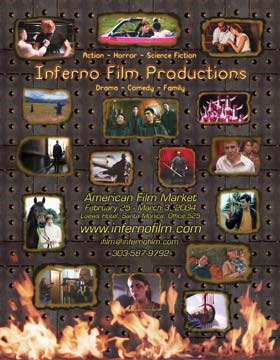
Inferno Film Productions ad, as it appeared on page 1 of Independent Film Quarterly
|
If you at least have *something* to pique a buyer's interest, you're off to a good start. Even
if someone had initially been looking for a particular type of entertainment product, it's not so unusual that
some of the other titles you have to offer will just happen to catch his or her eye, or there might be someone
else back at the home office who would be interested in reviewing some of the other products you have.
|
|
This year I shipped out Dell 2001fp 20.1" LCD panels for our video displays. Technology just keeps getting better
each year; the 2001fps were a substantial improvement over the ADI/Provista L912 displays we'd used last year.
Another change was to build an Epox "Mini Me" small form factor (SFF) based portable media server with all the
movies and trailers we were representing stored on it. Last year, I'd brought a couple of DVD changers; a media
server is faster and smaller, though it does have the drawback that there are more things that could have gone wrong with
it. (Fortunately, nothing did.)
One thing we'd tried in the past, but didn't do this year was to have a small private viewing room in the back of our
suite. It was a cute idea, but nobody ever used it. People would come to scheduled screenings that we had in the
theaters or or in the screening rooms at the Loews, but nobody ever wanted to screen movies "on demand" in our
office.
|
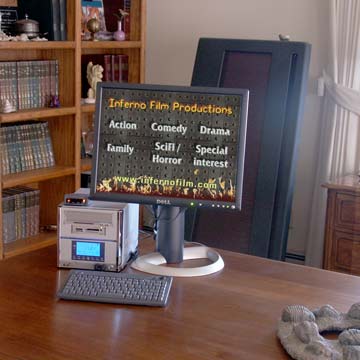
EpoX Mini-Me SFF media server |
 |
One of the side effects of turning the Loews hotel rooms into office suites is that, like many regular offices, you don't get
to sleep in them. (I'm sure some people doze off occasionally, but you don't get to stay there overnight.) This time we
spent our nights at the exotic nearly-beachfront Travelodge. It's not on the "official" list of hotels for the market and it's
certainly not as showy (or as expensive), but we can always hold any after-hours negotiations in a nearby restaurant.
|
|
It's probably better not to lure potential buyers into the Travelodge anyway. Here's the sign they had on the door:
|

This motel room may cause reproductive harm
|
(I'm not really sure what sort of chemicals they were storing in the motel rooms. I guess we'll just wait and see whether
I turn into some kind of strange mutant creature in time for the 25th American Film Market.)
|
Compared to the 23rd American Film Market in 2003, this year things seemed a lot more lively. Not only were there more
buyers, the buyers seemed much more eager. Last year one of the most common (and most puzzling) things I kept hearing
from buyers was that they were not going to take on anything that might be at all risky...in particular, they were only going
to consider higher-budget films.
|
The logic behind this seemed a little odd, but we'd been seeing the same trend from domestic video retailers that year: they
were cutting way back (or eliminating) independently produced and lower-budget titles in the name of eliminating risk...regardless
of how much more favorable the terms had been on the contracts for the independently-produced titles.
|
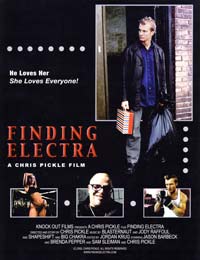 |
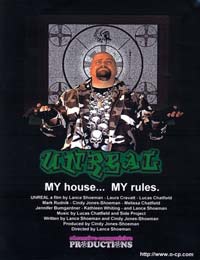 |
In 2004, I think we're seeing this starting to turn around. Buyers were interested in a more diverse range of titles,
budgets, and genres.
Some things haven't changed: horror and action are still hot genres, while dramas and comedies remain harder to sell
cross-culturally. That's not to say you can't sell dramas and comedies, but it's certainly more work to see to it that
a particular product ends up being seen by the right person.
|
|
On the other hand, we saw a heightened interest in family entertainment and some distributors who were specifically looking
for products aimed at female viewers, age 35 and up. So much of the time, it seems that people are only looking to target
male viewers aged 18 to 25. It's nice to see more interest in other demographics. One of the biggest surprises was how
much interest we had in our own martial arts training videos. We hadn't expected those to be a big draw at a market that's
primarily oriented towards feature films, but "Shinobigatana, basic sword skills" was our fourth most-requested screener.
|
 |
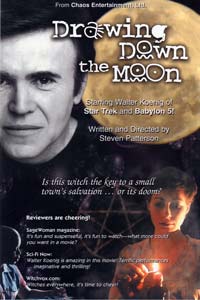 |
China seemed to be especially interested in acquiring foreign content this time around--much more so than in the past. They're
not a very high-paying territory right now, especially considering their size and population, but the buyers from China
were very eager to get deals signed right then and there for a diversity of titles and genres. Selling film rights to Chinese
buyers is slightly complicated by the added step of having to get the official stamp of approval of the Chinese government
before anything can be distributed, and that adds a little extra time and work to the process.
|
|
The Chinese censorship standards won't pose a problem with most titles: you can't criticize the Chinese government (no
surprise there) and you can't depict drug users as heroes. Pretty cut-and-dried. In the next couple of months we should
start hearing back which of our titles pass; I think almost all of them will without any trouble.
|
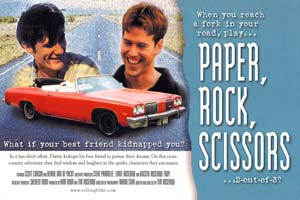 |
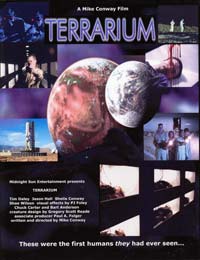 |
The standards are a little different for every country, and even for different buyers from the same country. I can't say
that they always make sense, either. One buyer was telling me that he had a lot of trouble distributing American-produced
action films because of the violence level. We talked about how much was too much, so I'd have an idea of what products to
steer him towards, and I asked him what the limits were for horror. "Oh, if it's horror, anything goes. The more, the better."
Go figure. A lot of movies can fit into multiple genres, and people will react totally differently depending on which genre
you say the movie is...you just have to get good at guessing the buyer's tastes before you open your mouth.
|
Once again, the bottom line came down to how good the promotional materials were. I've had lots of filmmakers
get me promotional material that really doesn't do their film justice; they always tell me
that the buyers should really watch their entire film to fully understand and appreciate it.
and that's absolutely true...except that they won't do it.
|
The sales presentation starts with the poster: it's got to grab their attention from twenty feet away and make
it clear at a glance what kind of movie it is.
|
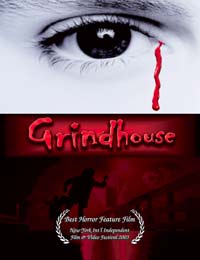 |
The poster also has to have enough interesting smaller details that it'll keep their interest when they look at it
up close. Otherwise, they won't want to bother with the movie or even the trailer: I'll usually have to get them interested in some other
title and then try to get them to watch the trailer "as long as I'm showing them something else anyway."
|
Then you have to make sure the trailer gets their interest in the first five seconds. If it doesn't, their minds are
already off thinking about a different product. You'd be surprised how many buyers won't watch the whole trailer
if it doesn't start out exciting enough.
The number one cause of "dull trailer syndrome" is trying to tell the story. Don't. If you're cutting a trailer, your
job is to make someone want to watch the movie; if they don't know what the movie's about, that's fine as long
as they want to watch it. If, after watching the trailer, they don't know the entire plot and storyline...good.
Make them want to watch the movie. If you can do that, you're most of the way to a sale; if you don't, it doesn't
matter how good the movie is, they won't bother watching it.
 |
In the movie itself, you've got the same situation: you've got to get the buyer's interest immediately...then you
can slow down a bit and fill in some details. A slow beginning is most likely to mean the buyer won't make it to the
ending...or even the middle. When you're a famous filmmaker, you can get away with starting it any way you want, but
until your name is a household word, you've got to use everything you have to catch and hold the buyers' eyes if
you're going to get your film distributed.
|
While we do sign some deals right at the market, most of our sales happen in between the markets. At the AFM, we
put in a certain amount of face-time with the buyers, but most of the negotiations go on afterwards, when the buyers
have returned to their home offices and have had a chance to screen the films that piqued their interest. Often they
(or someone else in their company) will decide after they get back that they'd like to review a few more of the films
we're representing, so we do an awful lot of international shipping after the markets, followed by more discussion and
negotiations, until eventually we get down to the numbers.
|
